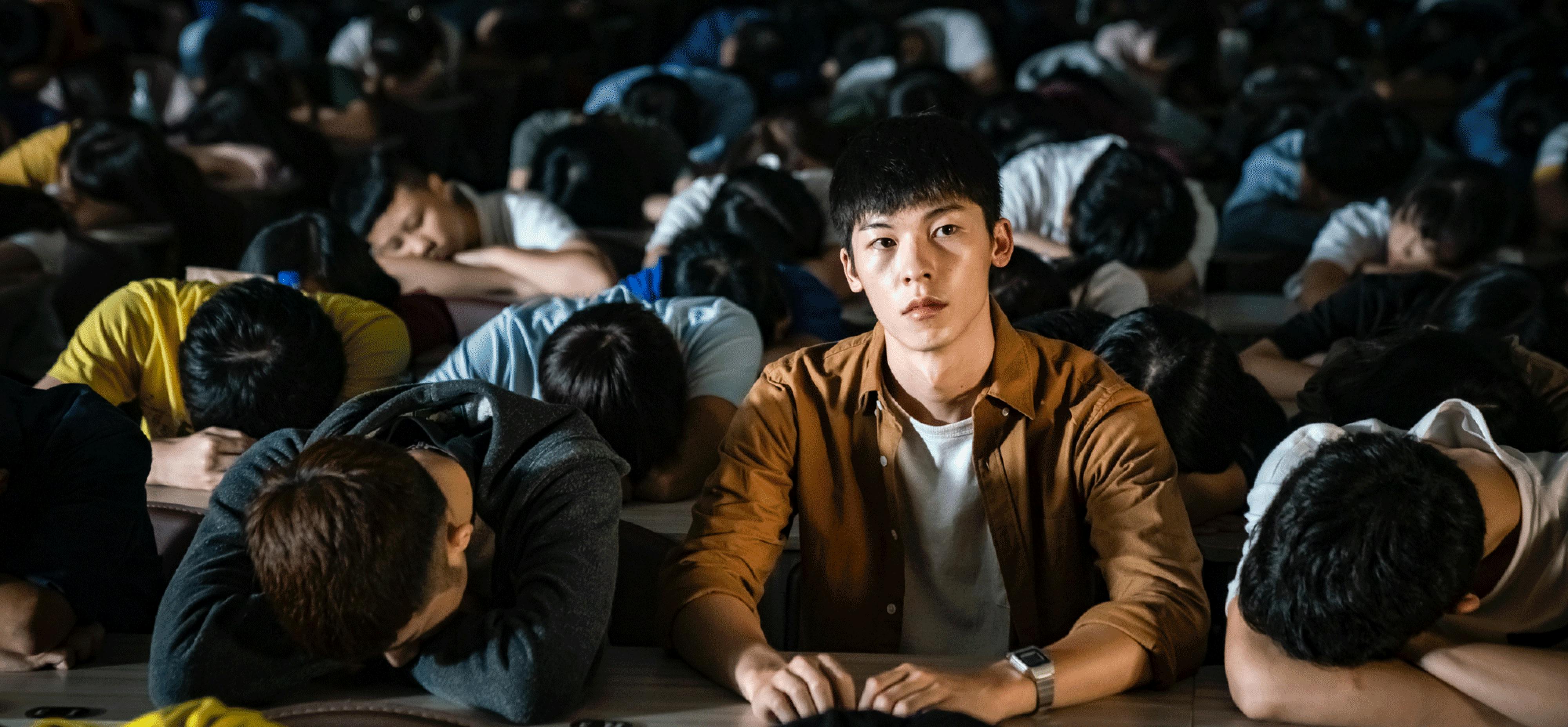Taiwanese filmmaker Chung Mong-hong finds himself in the company of global cinema’s most celebrated creators with
A Sun.
A Sun begins on a rainy night.
Amid an unrelenting downpour, A-ho (Wu Chien-ho) and his reprobate friend Radish (Liu Kuan-ting) don flimsy yellow ponchos and ride a motorcycle through Taipei’s drenched by-lanes. They make their way to a restaurant, walk through its kitchen and into the dining room. There, set to a gentle tune that plays almost like a lullaby, Radish attacks an unwary enemy with a machete, hacking off his hand and leaving him writhing on the floor in a torrent of blood. The grisly scene ends with a close-up of the severed extremity, bobbing jauntily in a steaming hot pot.
It’s a jolting opening to the Taiwanese film, directed by Chung Mong-hong and co-written with Chang Yao-sheng. A Sun reveals itself as a poignant drama, following a working family and the diverging paths of its two sons, A-ho and A-hao (Hsu Kuang-han). The wrenching visual cues often land louder than the dialogue, and tragedy comes threaded with moments of dark comedy.
Chung isn’t afraid to inhabit the shadows, both thematically and visually: He also handled the film’s cinematography, under his preferred pseudonym, Nagao Nakashima. “I think darkness is the safest,” he says. “In the womb, we were in darkness. After the tunnel of light, we were born and started to face the world.”
Chung is poised to face the world himself with this, his fifth narrative feature. A Sun swept the Golden Horse Awards (Taiwan’s equivalent of the Academy Awards) with six wins, including Best Feature Film; now it’s in the running for an Oscar, on the shortlist in the International Feature Film category. The last Taiwanese film to win at the Academy Awards was Ang Lee’s Crouching Tiger, Hidden Dragon in 2001.
“Call me a fan,” Lee says of Chung. “The otherworldly atmosphere and the poetic undertone, sometimes even the void, the grace, are all very Taiwanese.”
That’s no small praise coming from one of the most acclaimed filmmakers of our time, who counts three Oscars among his own lengthy list of global honors. Lee sat down with Chung to chat about A Sun, and to compare notes on some of their shared experiences in filmmaking.
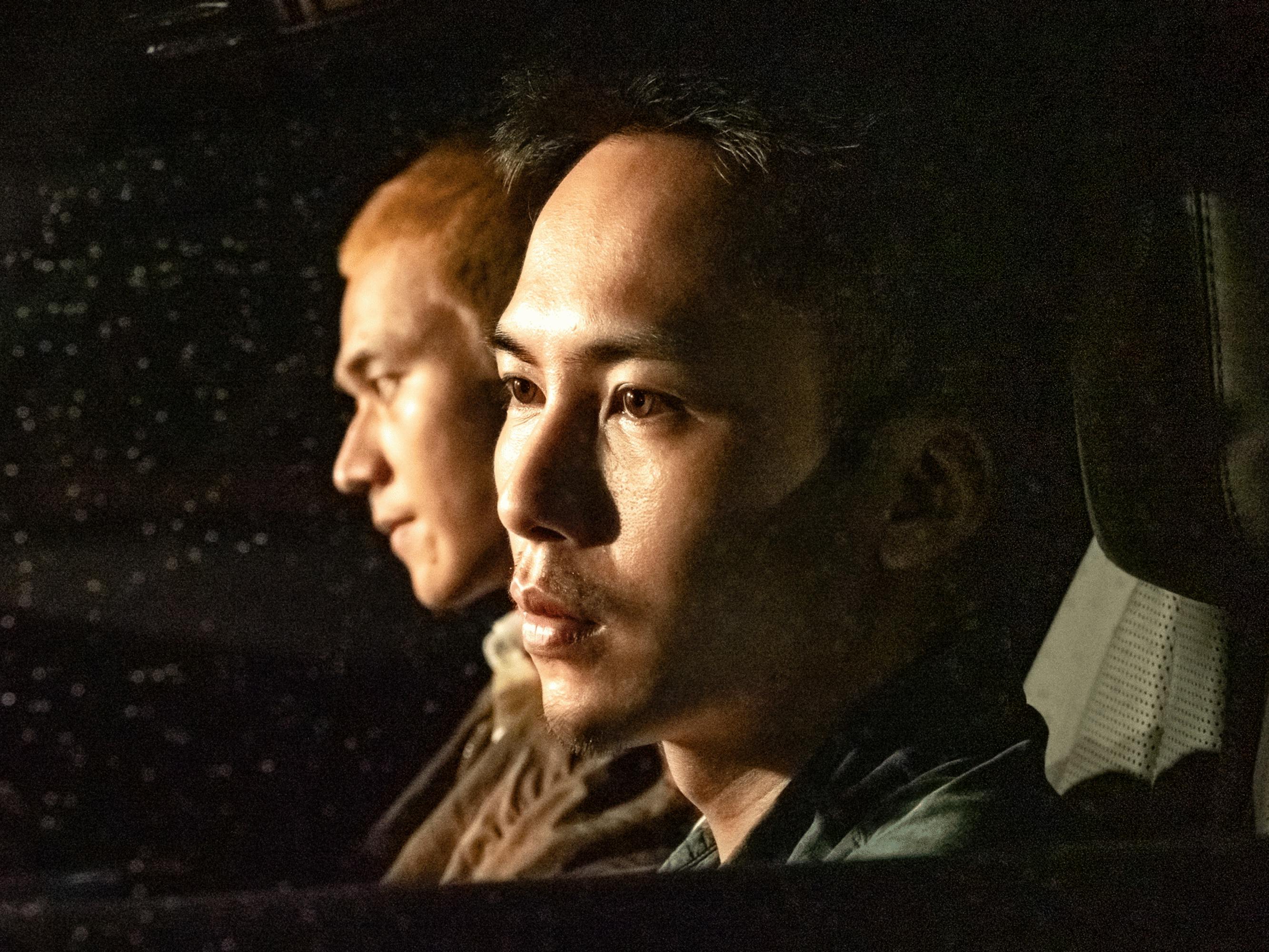
Radish (Liu Kuan-ting) and A-ho (Wu Chien-ho) in A Sun
Ang Lee: When you direct films, you are also the cinematographer. Can you tell us a bit about these two roles? How do you see the relationship between what you stage and what you capture?
Chung Mong-hong: Many people mistakenly assume I started as a cinematographer. I actually started as a director, but I couldn’t find cinematographers; that’s how I became my own cinematographer. I’ve always liked to take photos, since childhood. I thought I could apply the same composition method to films, but later I realized film cameras work differently. What I envisioned was drastically different from what I captured. The initial footage was terrible. It took me a long time to learn about composition with film cameras. It required me to stage in a certain way in order to capture what I wanted. It was a long but interesting process.
You decided to work with a new scriptwriter, Chang Yao-sheng, on this film. Does the new collaboration bring in new energy?
CMH: Good scriptwriters are like doctors. Chang has proved to be a great doctor. He was like a psychologist that listened to my stories every day. I talked and talked, and he listened and listened. He helped to point out my blind spots. Good writers really listen to your vision and offer great advice. I’m grateful to him.
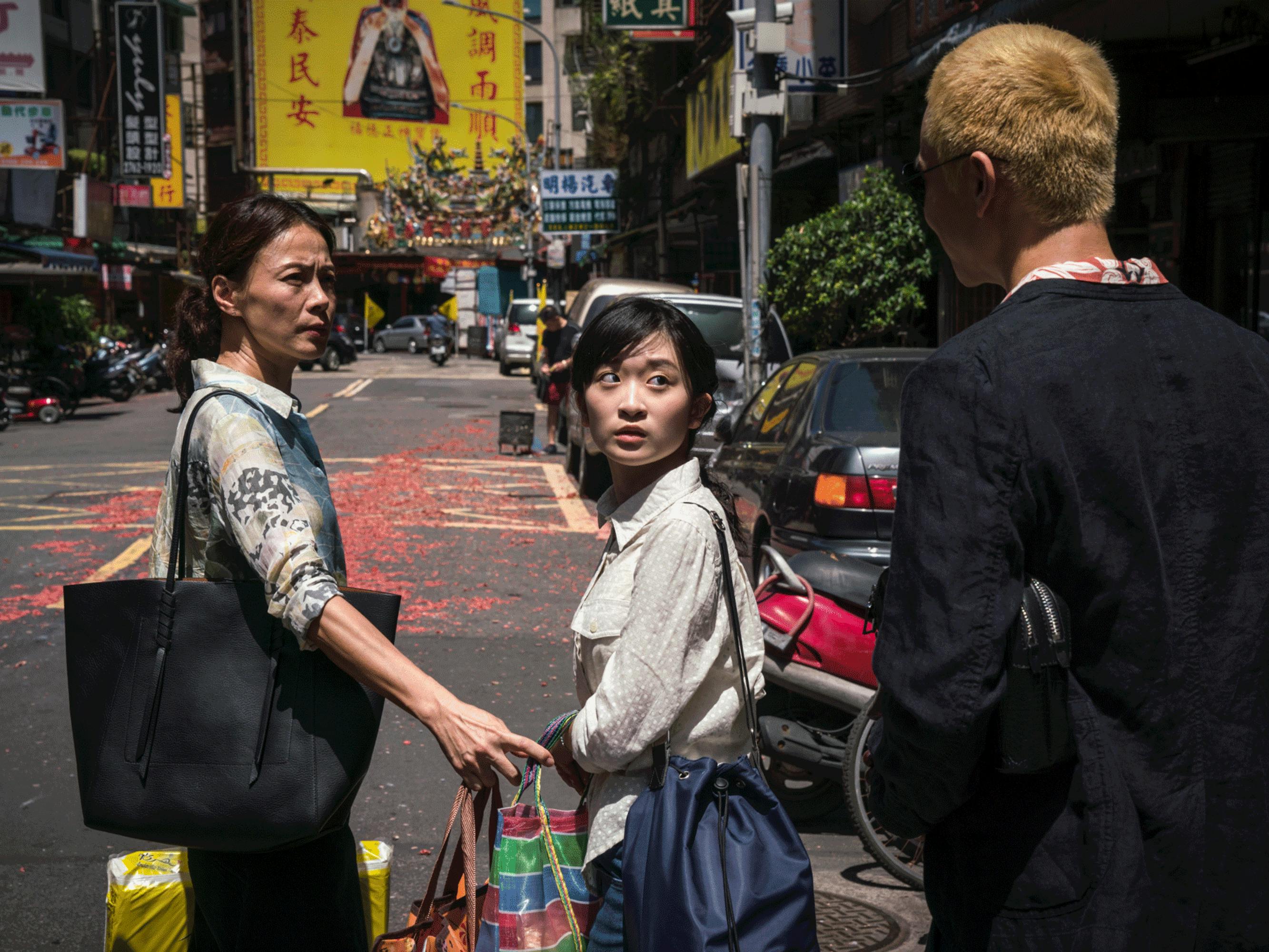
A-ho and A-hao’s mother, Miss Qin (Samantha Ko), with A-ho’s girlfriend, Xiao-yu (Wu Tai-ling), and Radish (Liu Kuan-ting)
When I watch your film, I feel somewhat envious and jealous. Films with larger budgets are not allowed to offer so many details. In your films, we can live with the characters.
CMH: When I want to offer time and space for characters to develop, I feel anxious. I am worried the characters are not rooted in substance or are not driven forward. I feel very anxious in this struggle. I need to set some boundaries. Should the story proceed? Should the next incident occur? You need to test how far the characters can go. That’s why I always ask people if they feel the film is too long or boring.
I think A Sun hits a sweet spot. Confrontation, tension, and struggle are all at the right level. You can feel something is driving this story forward.
CMH: I am sometimes worried about the destiny of characters in my films, even though I know the whole story. When I edit, it feels like creating a life path for the characters in the film. I often wonder if I can control characters in films and arrange their stories. Is it possible thatIam just another character in a drama? I often feel this way. I am not religious, but I believe it to be true. I, also, evolve over time.
Is it possible that I am just another character in a drama?
Chung Mong-Hong
Let’s talk about actors. The cast is brilliant. How did you inspire them?
CMH: I don’t really have any special skills. When I make films, I arrange lights and cameras. After actors come onto the set, I offer a place for them to live, talk, get angry, be happy, and feel sorrow. I don’t really do anything special, except place them in the scene.
Do you have rehearsals or discussions?
CMH: I never do rehearsals, readings, or discussions. The actors take the script home, and we meet again on set. I basically align these characters with my vision on set. I can’t really direct the actors, because I don’t know about acting. When I offer ideas, they may question them and think it’s hilarious.
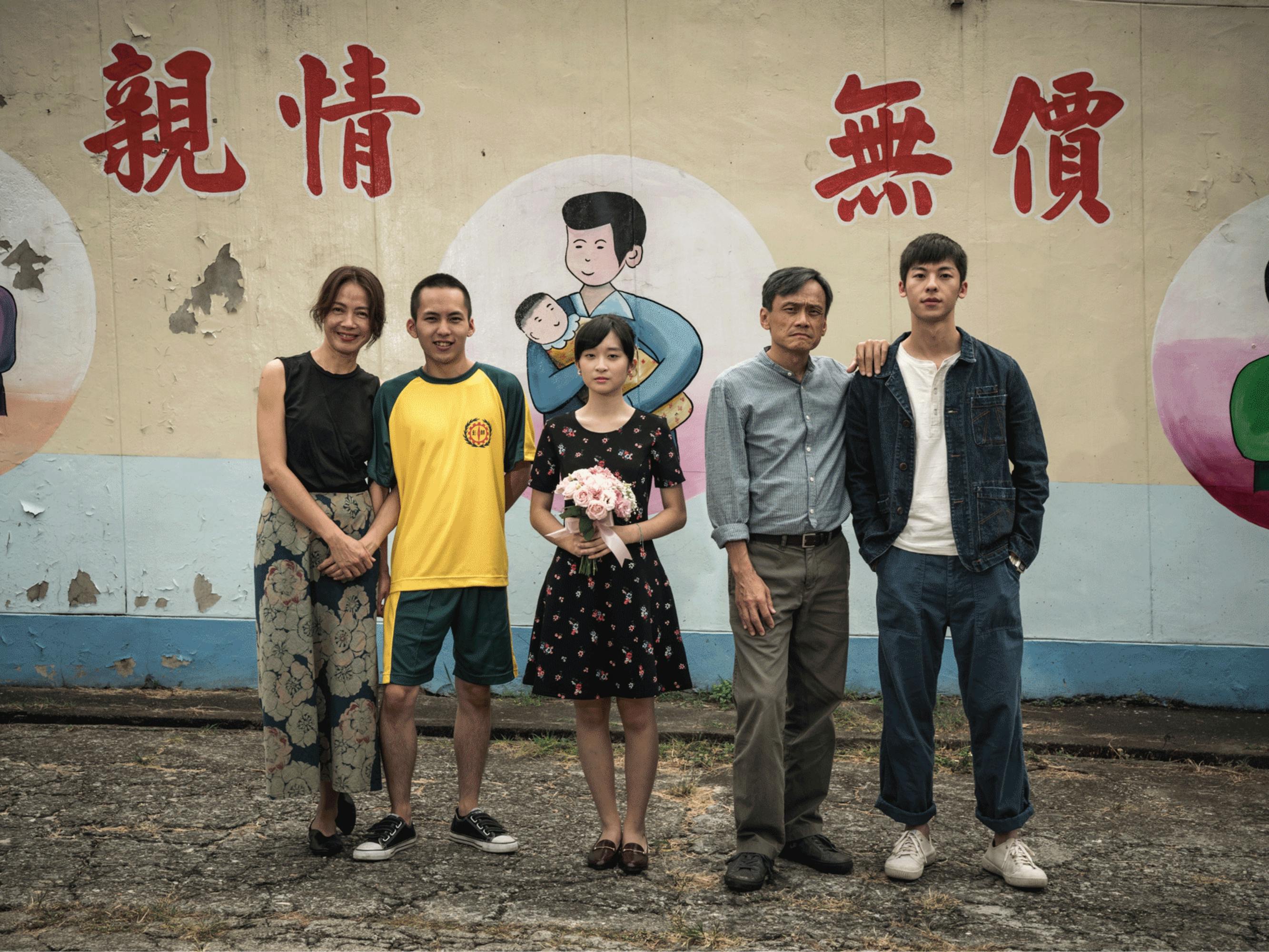
Samantha Ko, Wu Chien-ho, Wu Tai-ling, Chen Yi-wen, and Hsu Kuang-han play the family around which A Sun revolves
When you made this film, what was unconventional, special, or inspiring to you?
CMH: The story is mostly about family, and it’s complicated and twisted. However, I didn’t want to make a melodrama. I prefer genre films. I really want to pull these actors back. Melodrama is more heated, while genre films are cooler in tone. Under such restraints, contradiction and confrontation emerge. In the scene where the father [Chen Yi-wen] talks with Radish on the rooftop, I wanted to keep everything restrained; I was used to presenting a cold and intimidating tone. At the same time, I hoped viewers would really sympathize with the father, even though he is a lousy dad. We had a lot of these contradictions at play on set. I was on the verge of losing all my confidence. I don’t know if the same thing has happened to you.
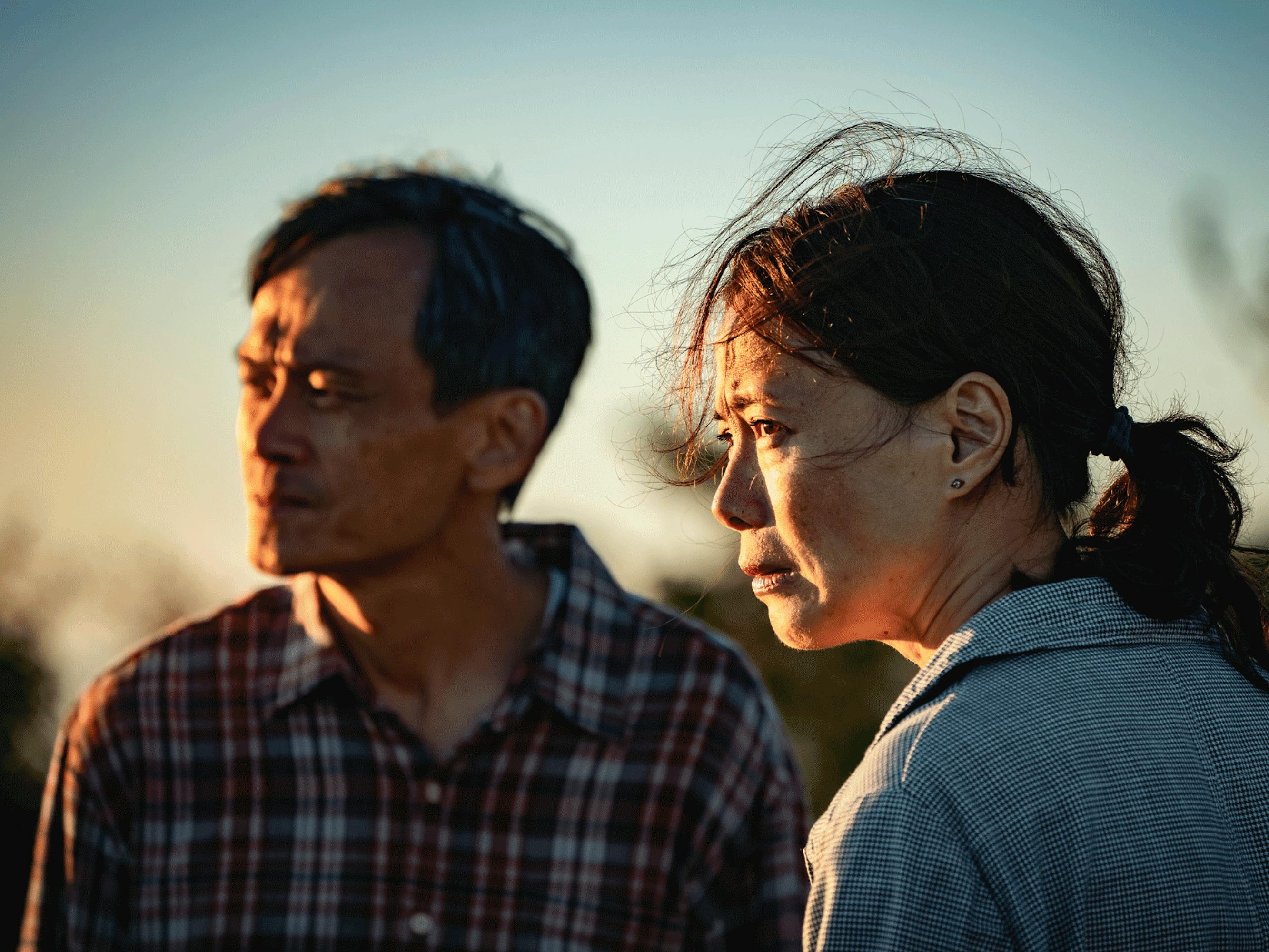
The father (Chen Yi-wen) and mother (Samantha Ko) at the center of A Sun
Yes. Films certainly need to go through the stages [of production] — that’s when you can admit your mistakes.
CMH: This film is different from my previous work. I think a lot about if I have done it right. No one can really give you the answer. People would tell me to believe in myself.
It’s a question we always ask ourselves.
CMH: Yes, that’s true.
Keep up the good work, and congratulations. It’s a great film, and I am happy to see it come from Taiwan.
CMH: I am indebted to you. Thank you, Ang Lee.
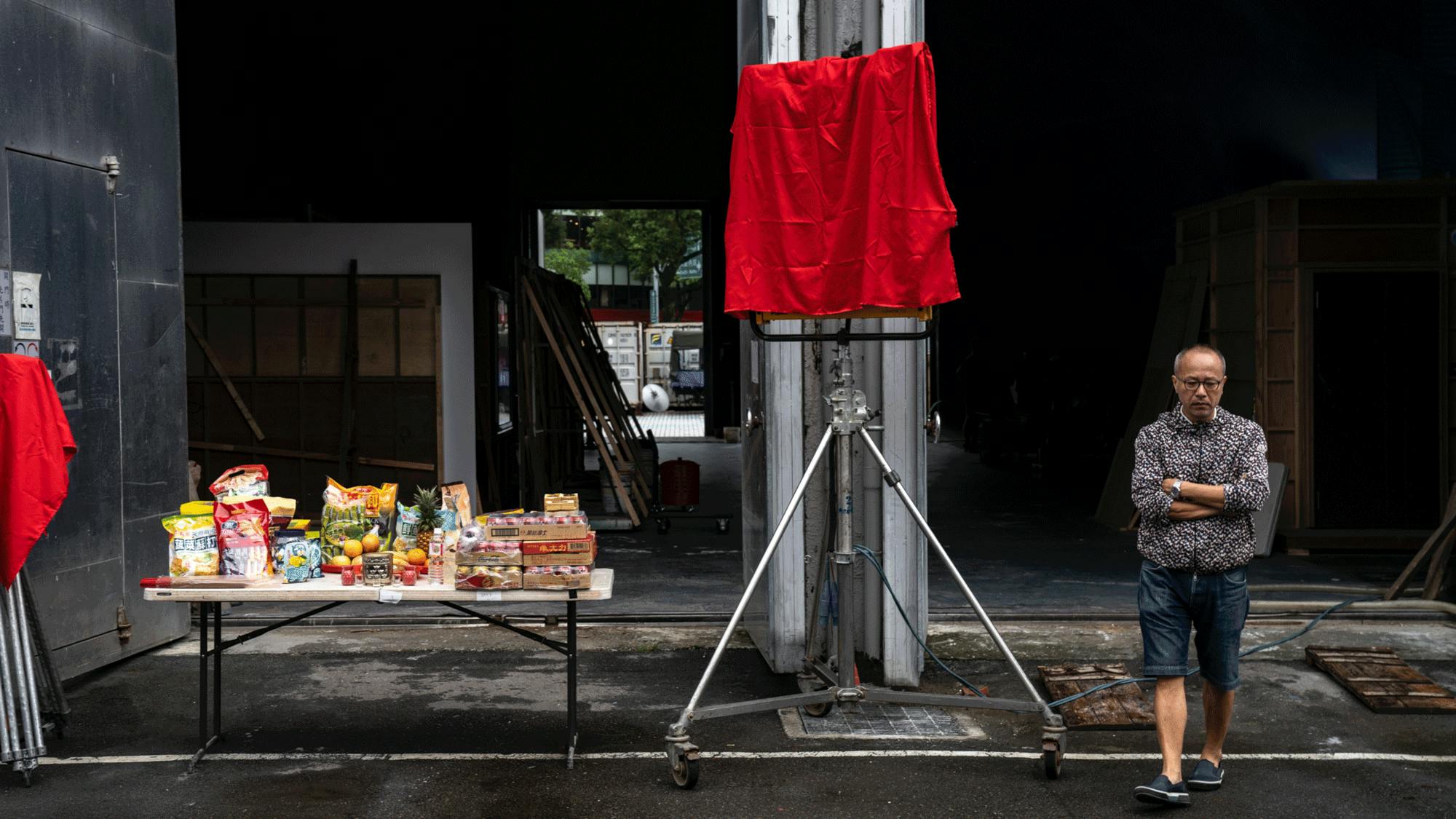
Chung Mong-hong behind the scenes on the set of A Sun
